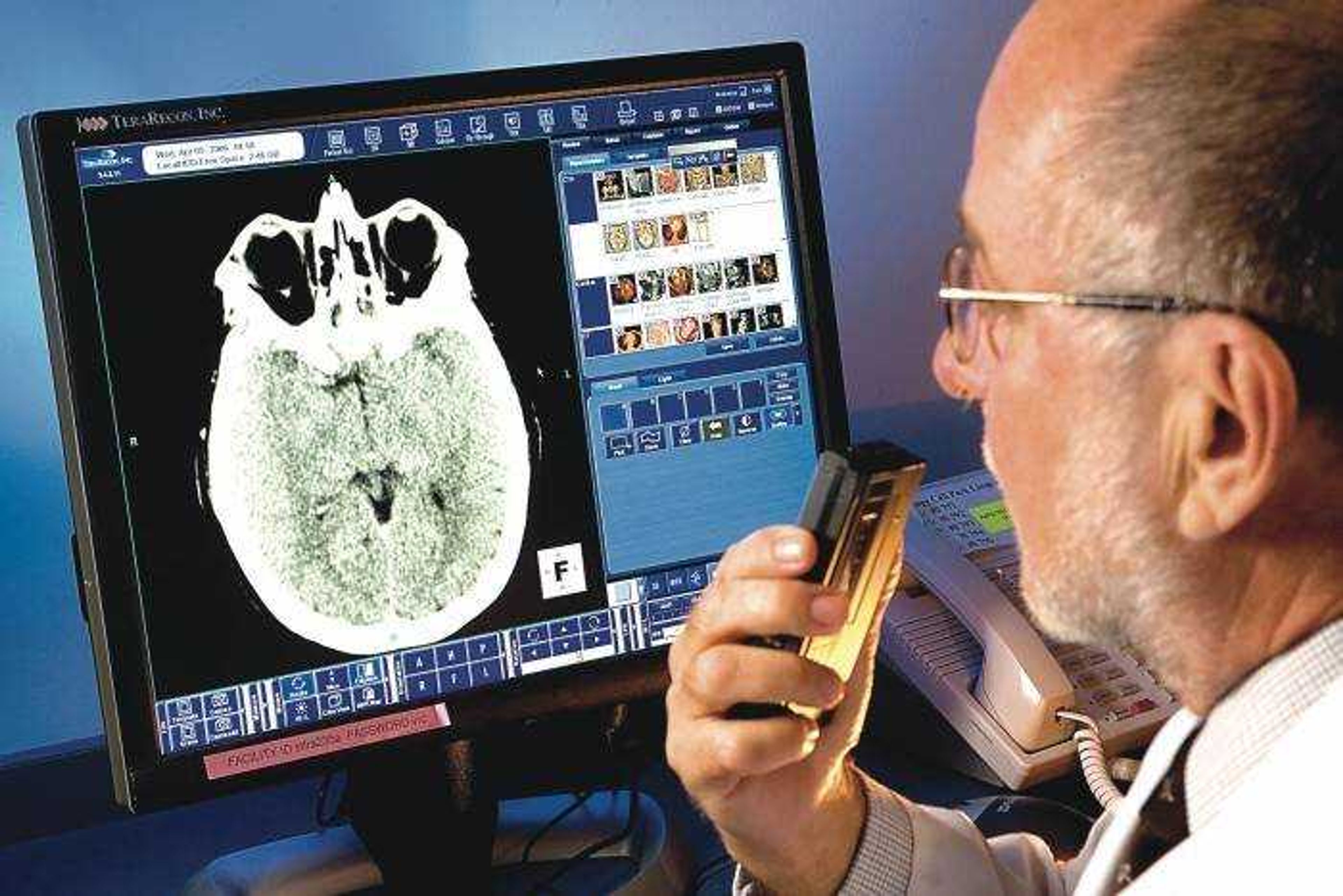~ Cape Girardeau woman makes recovery from stroke; others urged to get tested
Nearly 10 years ago, Vickie Sadler of Cape Girardeau tried to get up to go to bed and found that she couldn't.
"My arm and leg on my right side wouldn't work," Sadler recalled. "They felt like they went to sleep. I tried to shake off the feeling, but it wouldn't come back. I pulled myself up against the wall to get to the bedroom. I tried to talk to my husband, but I couldn't make the sounds."
Sadler had had a stroke. Her husband, Gary, recognized the symptoms and knew the first two or three hours following a stroke are critical. He rushed her to the emergency room at Saint Francis Medical Center, where she was immediately put on blood thinners and other medications.
Every year across the country, more than 700,000 Americans like Sadler suffer a stroke, said Dr. Robert E. Gardner, medical director of Saint Francis's Stroke Center.
"It's the leading cause of disability among adults and the third leading cause of death," he said.
Saint Francis is accredited by the Joint Commission on Hospital Accreditation as a stroke center, meaning it is capable of treating stroke patients from the time they arrive in the emergency room through their rehabilitation treatment. On May 12, Saint Francis is offering a free stroke screening to qualified people.
"I believe we can do something to reduce the incidences of stroke in this community," Gardner said.
People over the age of 60, who smoke, or who have a family history of stroke or cardiovascular disease, who have uncontrolled hypertension or diabetes, or have high cholesterol are asked to call (866) 220-7283 for a brief evaluation over the phone. Those who qualify will be scheduled an appointment for further screening.
People can't do much about their family history, Gardner said, but they can be educated to look for symptoms, such as dizziness, numbness, weakness or problems with balance. At the screening, medical professionals will look for blockage in the carotid or other major arteries, and other abnormalities, and will be referred to their physicians if necessary for further evaluation.
"If they participate in a proactive way, we can reduce the risk of stroke," Gardner said. "Education is an important factor."
Sadler said she had no symptoms to warn her. In fact, she was in the best shape she'd ever been in when she had her stroke. She was 46 and had just lost 90 pounds. She was walking daily. The irony of that was not lost on her, and she mentioned it to her doctor.
"He said, 'Look at it this way -- if you had not been in such good shape you might not have been here to tell it,'" she said.
The day before the stroke, she said, she may have overexerted herself working outside mowing the yard, but Sadler isn't sure that's what contributed to the stroke. But she does have a family history of stroke and diabetes.
Within 48 hours, Sadler, an assistant manager in Saint Francis' radiology department, regained the feeling in her hands and legs and her speech returned to her. After two months of rehabilitation, she was ready to come back to work.
Since her stroke she has also had a triple bypass surgery to clean out her carotid artery. She has kept off the weight she lost 10 years ago, she still exercises, and she takes an adult dosage aspirin daily as a preventive along with her blood pressure meds.
Sadler describes having a stroke as the most helpless feeling she ever had.
"I was so frustrated," she said. "You know what you want to do, but you can't."
Being aware of the symptoms and getting screened will help others avoid that frightening feeling. Sadler advises anyone who thinks they might have stroke symptoms to pay attention to them and get them checked out.
"I got two chances," Sadler said. "I had a stroke and a bypass and came back from them. Not a whole lot of people get a second chance."
Southeast Missouri Hospital also offers stroke screenings on a regular basis. The screenings are performed by registered or certified vascular technologists, and test results will be reviewed by a physician with the vascular diagnostic specialists at Southeast. The first Tuesday of every month, the screenings are held from 8:30 a.m. to 4:30 p.m. at HealthPoint Plaza in Cape Girardeau. The cost is $40, and the screenings are by appointment only.
lredeffer@semissourian.com
335-6611, extension 160
Connect with the Southeast Missourian Newsroom:
For corrections to this story or other insights for the editor, click here. To submit a letter to the editor, click here. To learn about the Southeast Missourian’s AI Policy, click here.








